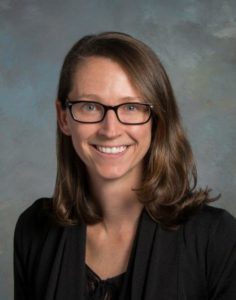
Assistant Professor of Earth and Environmental Sciences Pamela Grothe
An opinion piece by Assistant Professor of Earth and Environmental Sciences Pamela Grothe Pamela Grothe, titled “Commentary: Urban heat islands make climate change worse,” ran in The Free Lance-Star on Sunday, Aug. 21. Along with her co-author, Adam Lynch, a river steward with Friends of the Rappahannock, Grothe wrote: Little was known about Fredericksburg’s urban heat islands until this summer, when our two organizations, the University of Mary Washington and Friends of the Rappahannock, partnered on a comprehensive heat-mapping campaign, tracking heat in the city and surrounding counties. Read more.
